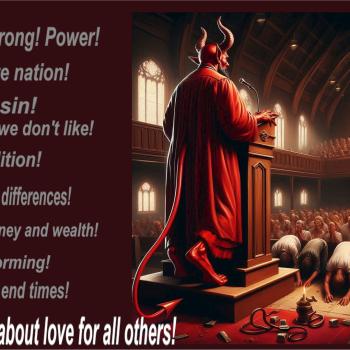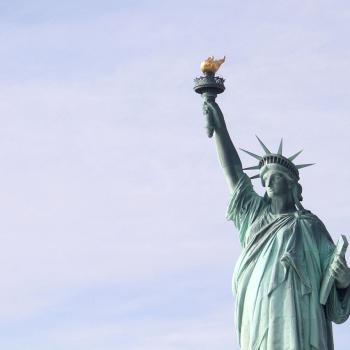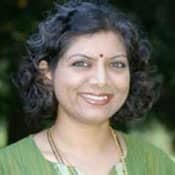It was an interesting coincidence that the final film of the Harry Potter saga came out on day of the Hindu festival known as Guru Purnima. Sheetal Shah, Senior Director of Hindu American Foundation blogged about this holy day, and I went to watch Harry carry through his final assignment from his guru, Dumbledore. While I am an avid fan of the movies, the books actually did more justice to the guru-sishya relationship of Prof. Albus Dumbledore and his student who fulfilled the tasks, specified and unspecified, set by the Headmaster of Hogwarts.
The Sanskrit word guru has made itself part of the vocabulary in the West, and specifically in America, due to the arrival of many gurus on its shores. Guru, which etymologically can be the compounding of "gu" (dispel) and "ru" (darkness, as akin to ignorance), is commonly used to refer to someone who is a teacher. However, a guru in the dharmic traditions—Hindus, Jains, and Sikhs all use the term—is a reference to the master who inspires us and puts us on the path to spiritual knowledge and truth: be it Guru Nanak, founder of Sikhism and the first Sikh guru, or the modern day Sadhguru Jaggi Vasudev, founder of Isha Yoga. Adi Shankaracharya, a Hindu scholar and guru from the 8th century, stated that: "If a person, despite possessing a handsome, disease-free body, fame, a mountain of wealth, and even if he has studied the Vedas and all other scriptures, and has himself composed many scriptures, but has not surrendered himself at the feet of a Guru, then he has achieved nothing, nothing, nothing, nothing."
While a Hindu can seek a guru actively in his quest for salvation, his first guru is his mother. It is when a child is sent away from his parents to study that the guru-sishya relationship as embodied by Dumbledore and Harry becomes important. Akin to the way Harry Potter and his fellow students go away to study at Hogwarts, the disciples traditionally reside at a gurukul and aspire to fulfill their potential as embodied by their gurus. During this time, a relationship develops; there is an emotional investment between the guru and sishya: it is not simply teaching a lesson, giving an assignment, getting a grade. A guru becomes a parent, a friend, a mentor, an advisor, and the sishya is nurtured to reach his or her fullest potential. Guru Purnima is a festival to honor the sacredness of that relationship, falling on a full moon day that falls in the month of June or July, during the Hindu month of Ashada.
Harry, throughout the seventh book, questions what he knows, what he learned from Dumbledore, and what he knows about Dumbledore. He wants to know the truth, but he also realizes that he must implicitly obey Dumbledore's unvoiced wishes. Just as a sishya is a seeker, and follows his guru to reach the Ultimate, Harry, (with Ron and Hermione) seeks the answers to the questions that Dumbledore left him—the ones that were obvious and ones that were unspoken. What Harry goes through while unraveling the Hallows and Horcruxes, facing death and meeting his guru again, reveals the complexity and beauty of a guru-sishya relationship as well.
Unfortunately, the word guru as used in the Western context can also leave a bad taste—whether because of the way it is used as a spoof in the title of a movie, or because a guru who is revered has betrayed the power he inevitably holds over his disciples. Throughout the final episode, Harry has misgivings about Dumbledore, the mission that he has been left, and whether Dumbledore has betrayed him. But by believing in himself, and in Dumbledore, Harry survives Voldemort yet again, bringing about Voldemort's end without ever having to be untrue to himself.
And the final question Harry poses Dumbledore is a testament to the beauty and complexity of what a disciple can learn from the guru: "Is this real? Or has this been happening inside my head?" Dumbledore's response? "Of course it is happening inside your head, Harry, but why on earth should that mean that it is not real?" That is the faith to which only a guru can lead one.
7/27/2011 4:00:00 AM





